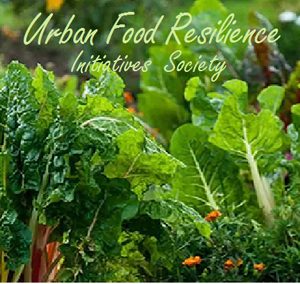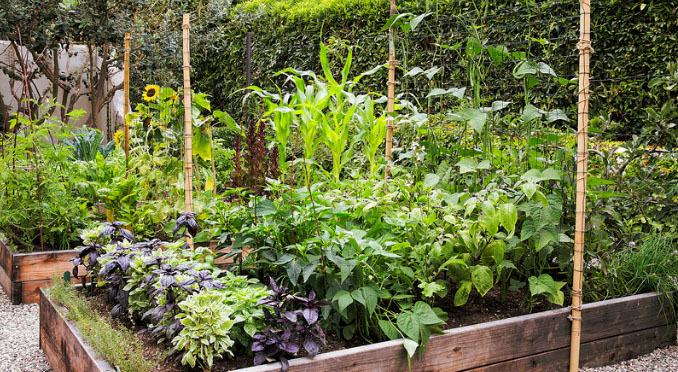Thursday November 7, 2024 | VICTORIA, BC [Updated May 19, 2025]
by Mary P Brooke, B.Sc., Executive Lead, Urban Food Resilience Initiatives Society
As part of the continuing work of Urban Food Resilience Initiatives Society (UFRIS) to improve the availability and effective distribution of natural-grown food in urban communities, our group has respectfully submitted these recommended action items for consideration for inclusion in the appropriate Minister’s mandate letters in the 43rd BC Parliament.
The new cabinet will be sworn-in on Monday November 18, at which time they will receive their mandate letters. [Update: Mandate letters were postponed to January 16, 2025]
Natural foods:
Natural foods are, for this context, meant to include vegetables and fruits that can be grown locally in BC.
On south Vancouver Island in particular there is a long outdoor growing season that is reliable from at least May to October.
Vegetables and fruit can also be grown indoors year-round with the support of modern technology.
Positive impact:
These recommendations are based on the knowledge that:
- fresh and natural-grown food has a positive impact on people’s health,
- grocery store prices often prohibit the purchase of fresh/frozen natural foods,
- growing one’s own food (at any volume) contributes to a sense of resilience which supports budget as well as mental well-being, in major emergencies (like earthquake and pandemic) that the supply of healthy natural foods will very likely be limited or entirely unavailable,
- and presently on Vancouver Island only about 3 to 10 percent of natural food is grown locally.
Cross-ministry approach:
A cross-ministry approach would likely include (but not be limited to) the BC ministries responsible for these areas of governance: Agriculture & Food, Municipalities, Poverty Reduction, Emergency Preparedness, Climate Action, Education, and Finance.
Recommendations:
- Require every municipality to create bylaws that will require all new building development permits to include on-site food-growing capacity and/or storage. That would include application to residential, commercial, institutional and industrial buildings where the range of food-growing capacity would include but not be limited to community gardens, proper balcony/patio supports/service for food-growing, indoor vertical tech green-rooms, and high-volume freezer storage of food for major emergencies.
- Require every municipality to foster the growing of natural food in urban spaces, whether indoors or outdoors, and by households and community efforts. This would be through community leadership, workshops, and municipal mission statements.
- Require all poverty-reduction initiatives of the BC government to include an urban food resilience framework that includes households growing their own food, in any volume, in addition to providing supports through food banks, grocery rescue, school food programs, and nutrition coupons at farmers markets.
- Expand the mandate of the Agriculture and Food Ministry to include a focus on the growing of food in urban spaces, thereby releasing municipalities and communities from assuming that food is only grown on Agricultural Land Reserve land or large tracts of arable land.
- Require the Agriculture ministry to develop soil quality to at least a minimal standard for food-growing across all municipal and community areas, relinquishing the burden to use only ALR land for farming and to encourage urban household and community garden development (whether in-ground or raised beds on land that is otherwise not arable).
- Provide ongoing support for small local farming operations including urban farms that are owned/operated privately or as a co-op or non-profit venture.
- Require all grocery store chains and outlets to abide by a code of cooperation with local farmers and to encourage price-breaks for urban customers.
- Develop confluence between the Emergency Preparedness ministry and Municipalities ministry to ensure that the storage of fresh/frozen food is maintained across communities for use in major emergencies; support and provide funding for emergency freezer capacity to be built across all urban communities (with solar energy power supply); support non-profit organizations that can facilitate food distribution in major emergencies.
- Require the Ministry of Emergency Preparedness and the Ministries of Agriculture and Municipalities to incorporate the provision of fresh/frozen food to neighbourhoods and communities in the event of major emergencies (e.g. earthquake, pandemic).
- Develop databases of the locations of farms, food storage and urban community gardens across all BC communities; collaborate with universities and regional governments that are already doing this work.
- Provide consistent funding (both capital and operating) to all non-profits that work in the areas of urban food, food resilience, local farming, and food banks.
- Require school districts to include food-growing skill development for all students within the life-skills components of their curriculum.
- Develop a tax credit for households that produce food in an at-home or community garden capacity. This will encourage natural food production in addition to government ‘affordability’ supports to low/middle-income families.
- Encourage all residents to learn seed-harvest skills as a way to reduce reliance on store-bought food.
- Encourage food composting across all communities as a way to improve micro-local soil quality.
- Facilitate the practice of rainwater collection and storage through infrastructure grants to municipalities and households.
- Ban the use of pesticides and herbicides in urban areas and on crops grown for human consumption; discourage the widespread use of ‘fish fertilizer’ on home-grown crops.
- Declare a ‘Grow Food at Home’ day in the annual government calendar which highlights the cross-ministry approach to urban food resilience in BC.
UFRIS is grateful for the opportunities to offer these suggested action items to the Premier’s transition team, for their attentoin to this important area of health, emergency support and economic resilience for households and communities, says UFRIS executive lead Mary Brooke.


Leave a Reply